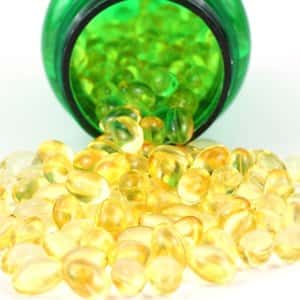
Vitamin D is crucial to bone health, but also may be essential for muscle strength. Previous research has indicated that older people with too little vitamin D in their systems are more susceptible to falls and fractures. It seemed logical to conclude that boosting vitamin D levels with supplements would make them less vulnerable.
A new study shows, however, that high-dose vitamin D supplements don’t seem to prevent falls or broken bones. In fact, the groups getting the most vitamin D had more falls and injuries.
Boosting Vitamin D Was a Bust:
The research involved 200 Swiss seniors who were at least 70 years old at the beginning of the study. It lasted for one year, during which one group was given a monthly dose of 24,000 IU of vitamin D3. This was the low dose, since 24,000 IU in 30 days works out to 800 IU per day, a dose that corresponds to the US Recommended Dietary Allowance.
Another group got the high-dose 60,000 IU of vitamin D3 once a month, and a third group got 24,000 IUs plus additional calcifediol, the active form of the vitamin D hormone. Both these groups were considered to be getting high dose supplementation.
Who Fell?
During the year about 60 percent of the volunteers took a tumble, but contrary to expectation, those in the low-dose vitamin D group were the least likely to fall. Fewer than half of them fell, compared to more than two-thirds of those in each high-dose group.
The investigators concluded that their results support low-dose vitamin D supplementation, but could not determine that even low-dose vitamin D supplements are better than placebo. We have further questions about the appropriateness of monthly doses compared to daily doses of vitamin D. All the same, another recent study did not show that people taking daily vitamin D supplements were less likely to fall or injure themselves.
JAMA Internal Medicine, Jan. 4, 2016
To learn more about vitamin D and supplementation, you may wish to read our Guide to Vitamin D Deficiency.

